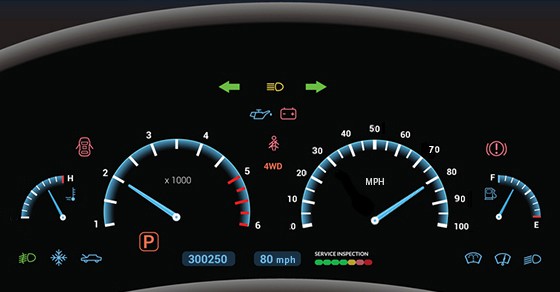Would you drive a car without a functional dashboard? Perhaps once a month someone could tell you how fast you were going and how much fuel you had left. Sound good? Probably not. Yet this is how many business owners run their companies.
The good news is there’s a solution. With the right software and some help from our firm, you can regularly receive dashboard reports that provide a one- or two-page summary of key business performance metrics in a concise, visual format.
Good looking info
Similar to a car’s control panel, dashboard reports provide business owners and managers with timely, relevant input to make quick but informed decisions. Everything in a dashboard report can typically be found elsewhere in the company’s financial reporting systems, just in a less user-friendly format.
Believe it or not, the concept of dashboard reports has been around since at least the 1990s, when they originally gained popularity. But now, thanks to 21st century technology, these reports are even easier to generate and distribute. Many companies offer them to ownership and management via an internal website or weekly e-mail blasts.
The right metrics
The critical question to ask when creating a dashboard report is: Which metrics should we include? The right answer depends on, among other things, current economic conditions, your industry and the specifics of your business operations. Nonetheless, most dashboard reports include financial ratios such as:
- Gross margin [(revenues – cost of sales) / revenues],
- Current ratio (current assets / current liabilities), and
- Total asset turnover (sales / total assets).
From there, industry-specific performance metrics are typically added. For example, a warehouse might report daily shipments or inventory turnover, not just total asset turnover. Or a retailer might provide sales graphs that highlight product mixes, sales rep performance, daily units sold and variances over the same week’s sales from the previous year.
Here to help
The purpose of dashboard reports is to quickly identify trends that require corrective actions. Just remember that they’re no replacement for sound, well-maintained financial statements. Please contact us for help with both.
© 2016



